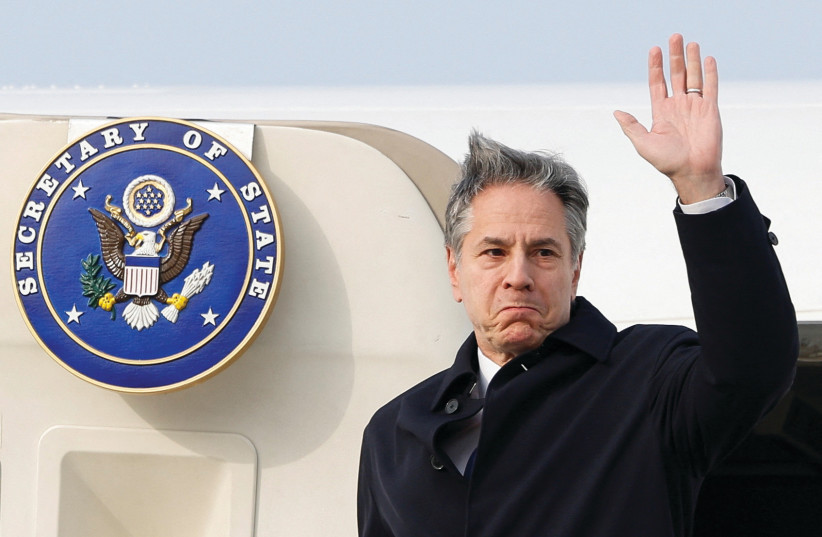A foreign affairs officer specializing in the Middle East in the State Department’s Bureau of Democracy, Human Rights, and Labor publicly announced her resignation over US-Israel policy, in an op-ed Wednesday on CNN.
Annelle Sheline said her work devoted to promoting human rights in the Middle East became near impossible as a representative of a government, which she said is directly enabling a plausible genocide in Gaza.
Sheline wrote that whatever credibility the US had as an advocate for human rights has almost entirely vanished since the Israel-Hamas war began. She expressed disappointment in the US government’s inaction to support journalists in Gaza.
“By resigning publicly, I am saddened by the knowledge that I likely foreclose a future at the State Department. I had not initially planned a public resignation. Because my time at State had been so short – I was hired on a two-year contract – I did not think I mattered enough to announce my resignation publicly,” Sheline wrote. “However, when I started to tell colleagues of my decision to resign, the response I heard repeatedly was, ‘Please speak for us.’”
According to Sheline, federal government employees have tried to publicly and privately influence policy decisions. She criticized the Biden administration’s “flagrant disregard for American laws.”
“I can no longer continue what I was doing,” Sheline wrote. “I hope that my resignation can contribute to the many efforts to push the administration to withdraw support for Israel’s war, for the sake of the 2 million Palestinians whose lives are at risk and for the sake of America’s moral standing in the world.”
At a briefing Wednesday, State Department spokesperson Matthew Miller said Secretary of State Antony Blinken welcomes hearing employee views and wants employees to speak up.

“There is a broad diversity of views inside the State Department about our policy concerning Gaza just as there’s a broad diversity within the State Department about our policy in several important foreign policy issues, as there is a broad diversity of views and opinions throughout American society about this issue and others,” Miller said.
Miller said employee opinions about Israel have influenced elements of US conduct regarding humanitarian aid.
State Dept. debate: Israel-Hamas policy criticism
In November, Blinken addressed rising criticism within the State Department ranks over the Biden administration’s policy on the Israel-Hamas war, as hundreds of US government employees openly and privately have advocated for a ceasefire in Gaza.
At least three cables criticizing the administration’s policy have been filed with the department’s internal “dissent channel,” which was established during the Vietnam War and allows diplomats to raise concerns about policy anonymously with the secretary of state, sources familiar with the matter said.
In an emailed letter to the State Department employees, Blinken, having just returned from a nine-day trip to the Middle East and Asia, acknowledged the emotional toll the conflict has taken on the workforce but also the possible divisions within the ranks over policy.
“I know that for many of you, the suffering caused by this crisis is taking a profound personal toll,” Blinken said in the letter obtained by Reuters.
“The anguish that comes with seeing the daily images of babies, children, elderly people, women, and other civilians suffering in this crisis is wrenching. I feel it myself,” he said.
“I also know that some people in the department may disagree with the approaches we are taking or have views on what we can do better. We’ve organized forums in Washington to hear from you and urged managers and teams to have candid discussions at posts around the world precisely so we can hear your feedback and ideas. I’ve asked our senior leadership to keep doing that.
“We’re listening: what you share is informing our policy and our messages.”
HuffPost was the first to report on the email.
While some sources say there has been “deep frustration” among members of working-level staff at the State Department, several US officials say that while the department leadership welcomes a diverse set of voices, it is unlikely to profoundly change Biden’s policy.
